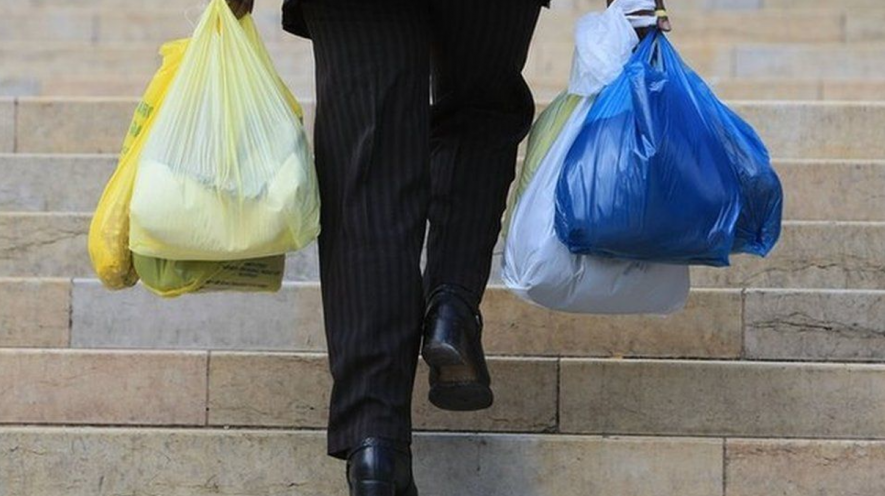Study Finds Loopholes in Implementation of EPR System for Plastic Packaging

Patna: India’s plastic waste problem can be managed by giving more teeth to its policies and guidelines, such as the country’s Extended Producer Responsibility (EPR) guidelines for plastic packaging, says a new study by the Centre for Science and Environment (CSE), a New Delhi-based think-tank.
CSE’s latest study also highlights significant gaps in the implementation of the guidelines.
“India is taking steps to fight the plastic waste menace, but its efforts
will not see fruition unless it gives more teeth to its policies and guidelines like EPR”, says the report.
Sunita Narain, director general, CSE, said: “We must manage our plastic in a manner so that it does not become a waste. The government’s EPR guidelines are an important tool, but the operational loopholes and other concerns that have emerged from the CSE assessment can lead to questions about its integrity – we must ensure that all this effort does not end up being a “waste” of time.”
CSE’s study underscores the need for robust interventions to ensure that India’s EPR framework effectively addresses plastic pollution and upholds the “polluter pays” principle.
The report said EPR in this context implies that producers and other stakeholders (such as importers etc) of plastic packaging material can be held accountable for their products through their entire lifecycle. This means that Producers, Importers, and Brand Owners (PIBOs) must invest in collection, transportation, channelisation and recycling of packaging plastic waste, says the report.
The EPR guidelines, issued by the Ministry of Environment, Forest, and Climate Change (MoEFCC) on February 16, 2022, require manufacturers, PIBOs as well as Plastic Waste Processors (PWPs) to register on a centralised portal. This framework sets specific targets for collection, recycling, end-of-life, recycled content usage and selective re-use in plastic packaging. CSE’s study, however, reveals major gaps in enforcement and systemic integrity that need urgent redressal.
According to the study, the centralised EPR portal has received 41,577 registrations from PIBOs (till the time of the CSE assessment) --- 83% of the registered PIBOs are Importers, 11% are Producers and 6% are Brand Owners. Of these, producers are responsible for introducing the majority of plastic packaging into the
Indian market, cumulatively accounting for 65% of the total. Brand owners are the next biggest contributors with 26%. Importers, despite being the highest in numbers to register, have only introduced 9% of the plastic packaging introduced in the market.
Atin Biswas, programme director, sustainable solid waste management and circular economy unit, CSE said, “No manufacturers of virgin plastics feature on the portal, despite the EPR guidelines mandating registration for manufacturers. Another concern is that key contributors to plastic waste management, such as urban local bodies (ULBs) and informal waste collectors lack representation in the EPR framework. This absence deprives them of incentives and support to manage plastic waste effectively, placing an undue burden on local governments.”
While collection targets have been in force since the notification of the guidelines, the (mechanical) recycling targets have kicked in from 2024-25. In 2024-25, registered PIBOs have a mandate to mechanically recycle 35% cent of the total plastic packaging introduced into the Indian market across all plastic categories.
These PIBOs have introduced 23.9 million tonne (MT) of plastic packaging into the Indian market since the launch of the EPR portal in April 2022 – this translates into an annual average plastic packaging waste generation of about 8 MT.
Biswas said, “This indicates that the Central Pollution Control Board’s (CPCB’s) estimation of annual average plastic waste generation (all kinds of plastic waste) of 4.1 MT is an underestimation.”
The study highlights another problem. As almost 66% of the plastic packaging introduced into the Indian market is flexible in nature, this kind of plastic is difficult to collect and recycle.
A March 2024 amendment to the EPR guidelines under the Plastic Waste Management Rules, 2016, has reclassified multi-layered plastic (MLP) packaging -- used to package chips, biscuits etc, and other small formats such as sachets – as flexible plastic packaging.
Siddharth G Singh, programme manager, sustainable solid waste management and circular economy, CSE, said in a release, “Cities across the Indian sub-continent have been struggling to deal with MLP packaging: a very small fraction of this waste goes for mechanical recycling and processing. The reclassification of MLP into flexible plastic category takes away the pressure from PIBOs to design their plastic packaging better, keeping the end-of-life of plastics in consideration. The burden of collecting and managing problematic formats of plastic packaging thus falls on local governments.”
Singh said, “Currently, PIBOs are paying only 10% of the total cost of collecting and channelising plastics to a plastic waste processor or recycler, especially for MLP packaging.”
In October 2023, the CPCB and state pollution control boards blew the lid off a scam in this sector. They discovered that plastic waste recyclers in three states were indulging in generation of fake ‘plastic certificates’.
The regulatory bodies found that 0.7 million (seven lakh) fake certificates were generated by plastic recyclers. This is 38 times more than the certificate generation capacity of recyclers. The CPCB has already imposed a cumulative fine of Rs 355 crore on the violators.
“Such practices drive certificate prices to untenable lows, undermining the system’s credibility. We have found that the malpractice is more widespread than believed. CSE’s assessment has discovered many more states where fake certificates are being generated. End-of-life disposal service providers such as waste-to-oil, waste-to-energy and cement co-processing facilities have been found to be generating certificates and transferring in volumes exceeding their registered processing capacities. As far as we know, no action has yet been taken against the PIBOs for defeating the purpose and principles of the EPR guidelines,” Singh said.
Shrotik Bose, research associate, sustainable solid waste management and circular economy unit, CSE, said “We have found huge differences between the quantity processed and the registered and verified capacities. For instance, end-of-life co-processing (cement plants) units claim to have collectively processed 335.4 MT per annum (TPA) of plastic packaging waste against a capacity of a mere 11.4 million TPA!”
The CSE report suggests some critical interventions that can be made to make the EPR system for plastic packaging more robust. Says Biswas, “We have some time. The implementation of the guidelines have a timeline till 2027-28. Corrective measures, if taken timely, can help run a well-oiled market-driven EPR system.”
Aniket Chandra, senior research associate, sustainable solid waste management and circular economy unit, CSE, and co-author of the study, says: “The current EPR regime misses a very important set of stakeholders – the informal sector and WMAs; these need to be recognised to increase the traceability of the value chain.”
The writer is a freelance journalist based in Patna, Bihar.
Get the latest reports & analysis with people's perspective on Protests, movements & deep analytical videos, discussions of the current affairs in your Telegram app. Subscribe to NewsClick's Telegram channel & get Real-Time updates on stories, as they get published on our website.























